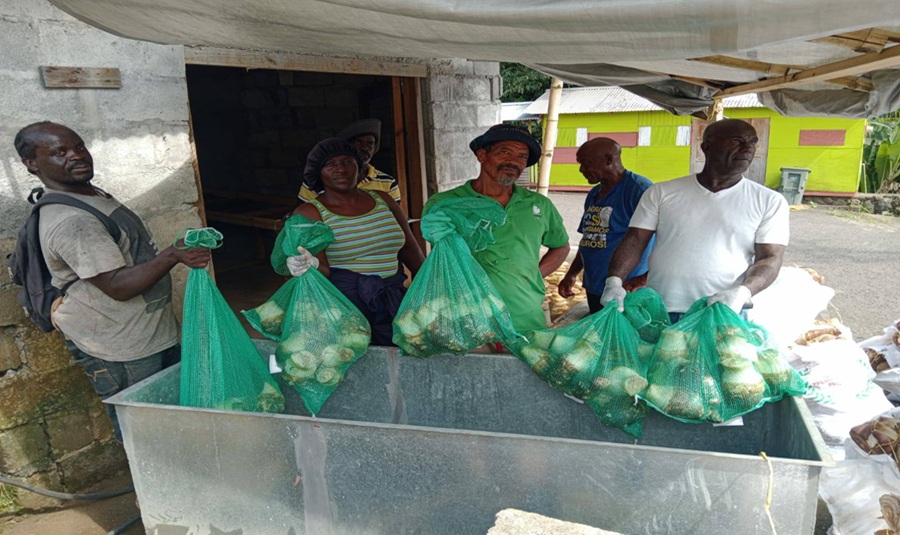The second phase of our research project which is investigating the efficacy of bio based pesticides for the control of post harvest diseases in dasheen has commenced in St Vincent and the Grenadines.
This phase is simulating the shipping conditions under which the corms are transported to overeseas markets. Analysis will be done to determine how effective the treatments (lime sulphur, Serenade and water) were in controlling microorganisms like fungi and bacteria. These pathogens enter the corms through wounds or damaged surfaces leading to tissue degradation and discolorations and eventual spoilage. The treatments will be compared to standard post-harvest treatment – Ridomil Gold.
The objective of this research is to find an alternative post-harvest treatment for Ridomil. The European Union has instituted strict MRL levels for this chemical and farmers and exporters run the risk of losing their shipment once the MRL level is exceeded. In addition, a ban of this chemical appears to be imminent by the EU.
CARDI Caribbean, ECTAD Caribbean and Ministry of Agriculture, Rural Transformation, Forestry & Fisheries – SVG through the financing of COLEAD link are working to ensure farmers can continue to export to European markets. This will guarantee the continued employment and an improved standard of living for the many individuals in rural communities that are directly and indirectly involved in the industry.
Data will be collected over the next 5 weeks following which analysis will be done.
The two varieties being studied are the local variety and the Samoana. They were supplied by ECTAD farmers in Greiggs.




